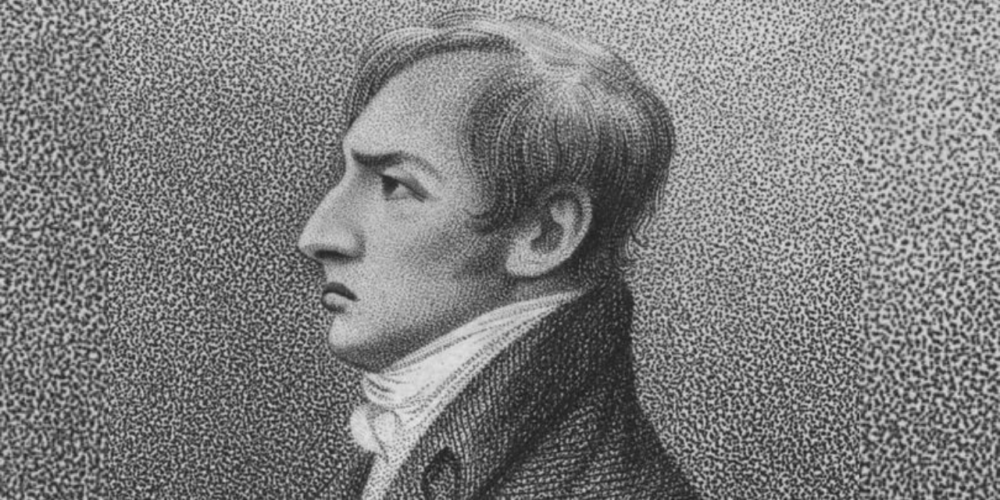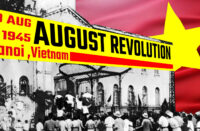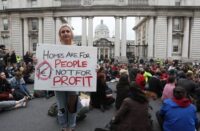On the 23rd of July 1803, Robert Emmet led roughly 80 men towards Dublin Castle. They were armed with pikes, pistols and blunderbusses. Emmet wouldn’t see the drunken riot that his revolution would descend into – the lack of discipline amongst the men caused him to leave Dublin and go into hiding in Wicklow. Lack of discipline wasn’t the only reason Emmet left in frustration, however, as many of the promises made to him by leaders around the country went unfulfilled, and the work to ensure a revolution could be had on equal footing with the English wasn’t completed in time. Without clear leadership, the would-be rebels took to fighting the police and eventually were stopped by a garrison of the army. The revolution, which started at around 8 o’clock, was over by midnight.
The Emmet Conspiracy, which led to this small insurrection which ultimately failed, is an interesting look into republican ideology. Many of those who Emmet conspired with were veterans of the 1798 rebellion. Emmet, like Wolfe Tone, had requested aid from France but was clear that he didn’t want Ireland to be subjected by France instead of England, trading one oppressor for another. Emmet wanted Ireland to enter a treaty on equal terms with France. He didn’t want a single Frenchman to set foot on Irish soil before the castle was taken and Ireland was liberated by the Irish. Emmet knew that there would be a period of war between a newly liberated Ireland and a British state attempting to hold on to its colony and believed the French could aid during this.
This forward thinking can be seen in the Proclamation of the Provisional Government (1803) which outlines how the rebels would conduct themselves and treat their enemies. What is of greater interest is the socialistic nature of this Proclamation. Points 1-3 outline the taking of church lands into state hands, the prohibition of the transfer of ownership of land and the voiding of debt. The system of democracy that would be implemented is also discussed in the final points of the document. The people who were to take part in the revolution were largely made up of workers in both the towns and rural areas. What is important to note is that the workers had a lot to gain from what this Proclamation outlined.
Republicanism came out of the likes of Wolfe Tone and the United Irishmen. Both Robert Emmet and Theobald Wolfe Tone were of Protestant descent and both had attended Trinity College which the workers they organised would never have been able to do. Both understood, however, that the workers in both the towns and rural areas were the most affected by British rule. This can be summed up in a quote by Tone: “[I]f the men of property will not help us they must fall; we will free ourselves by the aid of that large and respectable class of the community – the men of no property.”
Emmet continued this idea by organising with the same “men of no property” which gave republicanism a working-class nature as they were fighting for their social and, at times, economic emancipation. This working-class nature continues with the young Irelanders organising the workers but, unfortunately, betraying those same workers as they couldn’t bear to see them in positions of power. The Fenians of 1867 however were led by the workers themselves which is evidenced in their Proclamation. Their Proclamation opened with “our rights and liberties have been trampled on by an alien aristocracy, who, treating us as foes, usurped our lands and drew away from our unfortunate country all material riches.”
While the republican ideology didn’t come out of the workers it was greatly influenced by the necessity for them to take part as the drivers of history. The republican revolutions of the past can be seen at least in part as workers’ revolutions, with the British state describing Emmet’s rebellion as such.






